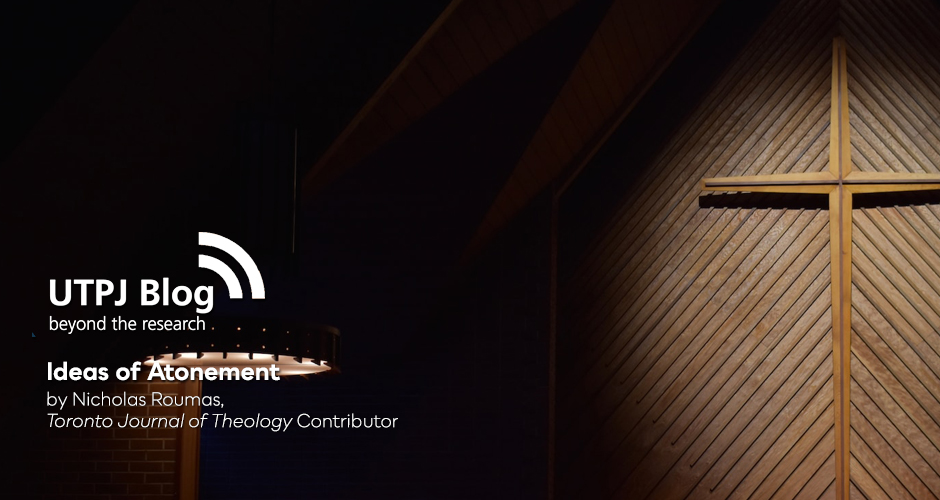
All Christians put their faith in the cross of Christ, but that doesn’t mean all believe alike. I remember learning this. That’s how my life as a researcher started.
Christians use the word “atonement” to denote the belief that Jesus saved people’s souls through his crucifixion. I’m Greek Orthodox, and we don’t have a word in our religious vocabulary that means the same thing as “atonement.” So, some Christians use this word. As an Orthodox in a Western country, this makes me an outlier. But I think the word “atonement” is useful. Though the word, and perhaps the concept, is lacking in my own tradition, it nonetheless describes something present and real for us Orthodox.
When I was a student, I shared an apartment with some Evangelical friends, and you’d better believe they had the concept of atonement. I moved in with them to get away from late- night noise. Very quickly I found myself interrogating my and their beliefs about the cross. Why did I, a Christian who was quite literate in my faith, have no common vocabulary to talk with these other believers about the center of our belief?
For these Evangelical friends, salvation centered around one definite interpretation of the crucifixion—what’s commonly known as penal substitutionary atonement—to the exclusion of all else. To them, Christianity was no more and no less than this single belief. To avoid provoking a misunderstanding, I refrained from telling them I’d never heard of it.
As a result of my time with these people, while I came to understand and appreciate their view, I developed an appreciation for Orthodox doctrinal holism—one might call it vagueness—as well. My Orthodox tradition is indeterminate in its teaching about the cross. The cross saves, but the reason why is never precisely explained. Instead of theories about the cross, Orthodox tradition offers an integrative approach: salvation is brought about through Christ’s incarnation, his life, his teaching, and, most of all, by his suffering, death, and resurrection.
Years later, when I encountered French-American literary critic René Girard’s writings on the Gospels, I found the building blocks of an integrative approach to salvation that resonated with my Orthodox belief, yet was grounded in the technical precision and realism of Girard’s mimetic theory of human behavior. Since then, I’ve reworked Girard’s ideas into an article, a doctoral thesis, and a book that explores the cross from the vantage point of his theory. My goal is to combine Orthodox holism with the handy precision that came with my old housemates’ belief in atonement.
The benefits of my project seem to me to be twofold. On the one hand, it demonstrates that seemingly at-odds viewpoints can coexist, reducing the occasions for beside-the-point disagreements among Christians. Salvation does not have to be about either the death, the teaching, the resurrection, or the incarnation of Jesus, because it can be about all these and more at once. But more than that, an approach to the cross that is both integrative and precise can open up treasures of meaning: the integrative aspect because of its completeness, and the precision because of the greater truth that can be gathered from having a definite idea.
I personally feel greater riches of God’s grace opened up to me through the discoveries made in my research. I can hope that others will find the same, and that Christians of various stripes may find common ground between them they wouldn’t have known they had. Above all, perhaps that faith in the cross of Jesus can mean something broader and clearer to us than it did before.
 Nicholas Roumas is an Orthodox theologian and composer of liturgical music. He teaches theology at Hellenic College in Brookline, Massachusetts, alongside Byzantine music at the Greek Orthodox Archdiocese of America. His forthcoming book, Redemption: A Mimetic Soteriology, focuses on Girard and the doctrine of redemption.
Nicholas Roumas is an Orthodox theologian and composer of liturgical music. He teaches theology at Hellenic College in Brookline, Massachusetts, alongside Byzantine music at the Greek Orthodox Archdiocese of America. His forthcoming book, Redemption: A Mimetic Soteriology, focuses on Girard and the doctrine of redemption.
Comments on this entry are closed.